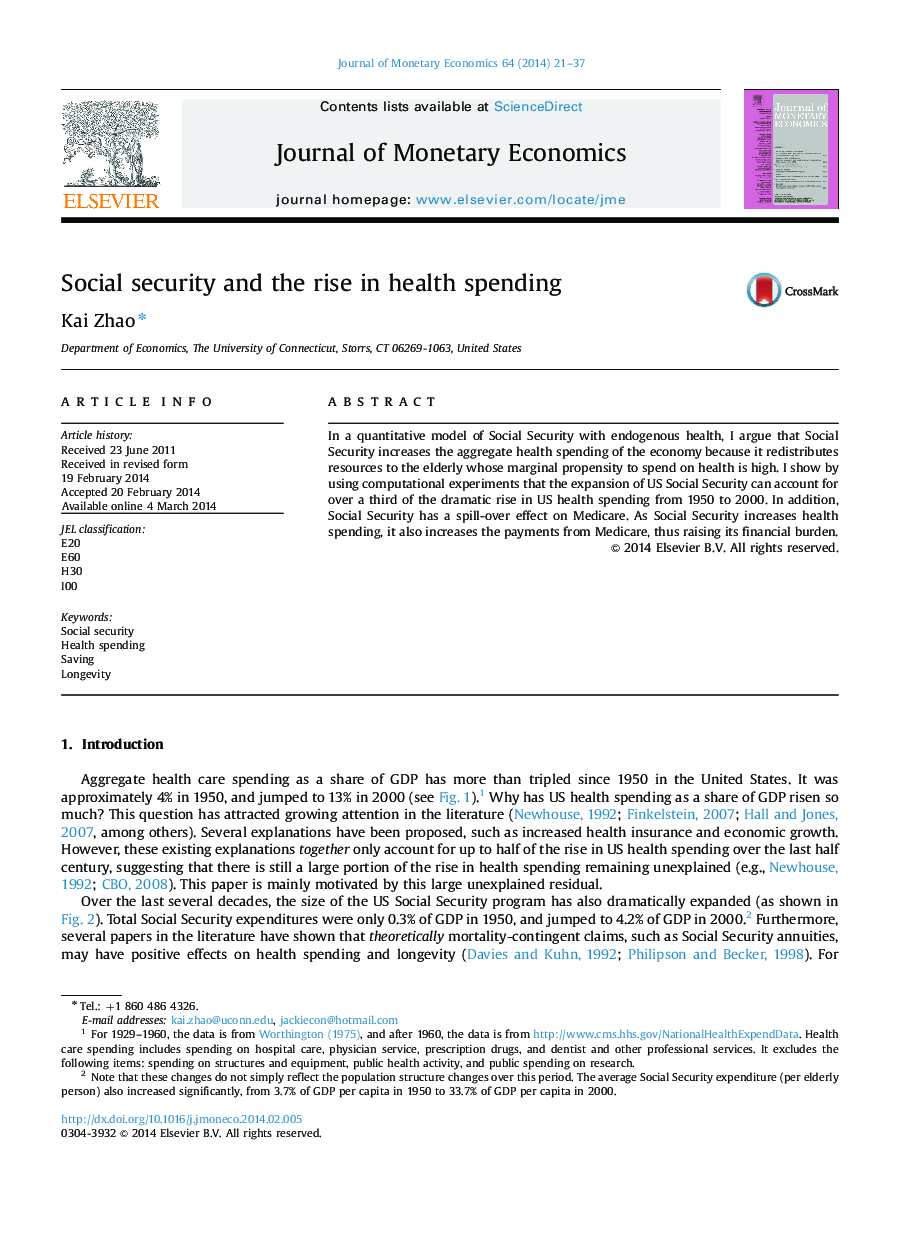| Article ID | Journal | Published Year | Pages | File Type |
|---|---|---|---|---|
| 967435 | Journal of Monetary Economics | 2014 | 17 Pages |
Abstract
In a quantitative model of Social Security with endogenous health, I argue that Social Security increases the aggregate health spending of the economy because it redistributes resources to the elderly whose marginal propensity to spend on health is high. I show by using computational experiments that the expansion of US Social Security can account for over a third of the dramatic rise in US health spending from 1950 to 2000. In addition, Social Security has a spill-over effect on Medicare. As Social Security increases health spending, it also increases the payments from Medicare, thus raising its financial burden.
Related Topics
Social Sciences and Humanities
Economics, Econometrics and Finance
Economics and Econometrics
Authors
Kai Zhao,
